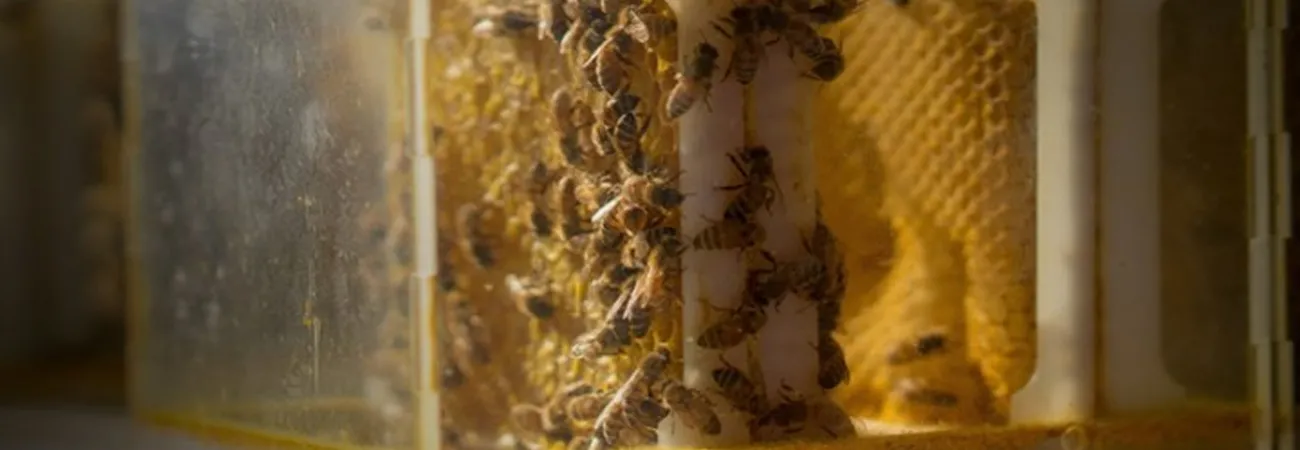i ECONOMY
Beekeeping can emerge as a transformative force in Pakistan's rural heartlands, unlocking immense potential for economic growth and community development,” reports WealthPK. “Beekeeping and honey farming play a vital role in the agro-processing industry. They not only generate income and job opportunities in rural areas but also contribute to food security by increasing crop yields through pollination,” said an expert from the Honeybee Research Institute (HBRI) of the National Agricultural Research Council (NARC). The official wished to remain anonymous. Honey has become more popular because of its numerous health benefits. The world honey market is worth around $7.84 billion, and the amount of honey that countries export has grown by 35% over the last 10 years, to a total value of $2.3 billion. The HBRI researcher said, “Beekeeping and honey farming primarily take place in the central and northern regions of Pakistan, including Chakwal, Mianwali, Attock, and Sargodha in the Punjab province and Karak, Kohat, Swat, and Chitral in the Khyber Pakhtunkhwa province.
“One of the primary advantages of beekeeping is its easy accessibility for small-scale farmers and rural entrepreneurs. They can easily incorporate beekeeping into their existing agricultural activities to supplement their income. This diversification not only provides a boost to household incomes but also helps in building resilience against market fluctuations and climate-related risks.” “In addition, beekeeping plays a crucial role in environmental preservation by encouraging biodiversity and sustaining pollination services that are fundamental for crop production. The significance of bees in pollination cannot be overstated, especially in countries like Pakistan where agriculture is a major player in the economy. Promoting healthy bee populations contributes to enhancing agricultural yields and ensuring food security, making beekeepers an indirect contributor to both,” he said. “However, despite having a conducive environment and diverse flora for producing good quality honey, beekeeping in Pakistan faces several challenges that hinder its growth potential. Pakistan has yet to become one of the major producers and exporters of honey.”
“One of the key challenges is the limited adoption of commercial-scale production methods, with many beekeepers operating on a small scale primarily for personal or local market consumption. This lack of large-scale production limits the industry's ability to meet broader market demands and expand its reach. “Additionally, absence of major local or multinational food processing companies actively participating in the honey sector creates a gap in market access and branding opportunities. “Furthermore, there is a need for improved management of Pakistan's diverse forests and vegetation, which could provide a more conducive environment for sustainable beekeeping practices and enhance honey production on a larger scale,” he explained. Ahmed, a beekeeper from Chakwal, said, “Currently, honey is not produced in Pakistan on a large commercial scale. Rather, a significant proportion of beekeepers produce honey on a small scale, primarily for personal consumption or for selling among the local communities.
Some medium-sized private companies sell processed honey in major cities under their own brand names, but none of the major local or multinational food processing companies currently active in Pakistan has entered this sector so far. He said Pakistan had diverse forests with a variety of vegetation, which if managed properly, could provide an opportunity for the growth of a sustainable beekeeping industry. Currently, there are approximately 27,000 beekeepers in Pakistan who manage almost 1.1 million bee colonies. Approximately 15,000 metric tons of honey was produced in 2020. Pakistan ranks 20th in the world for honey production.
Credit: Independent News Pakistan









